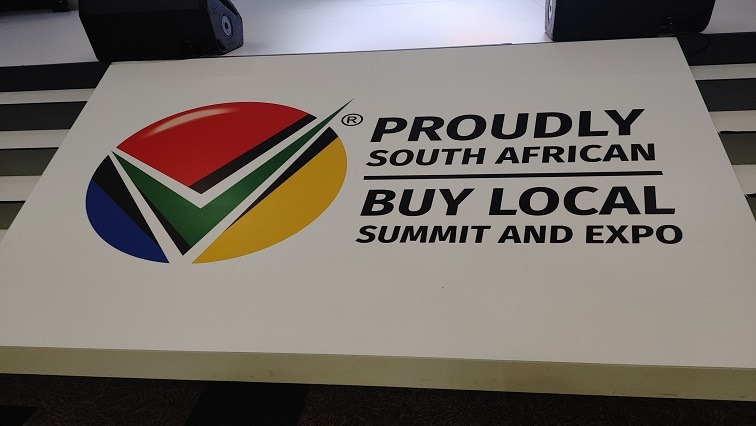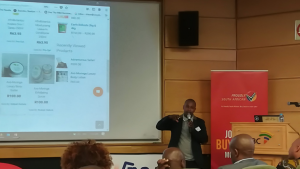The CEO of Proudly South African, Eustace Mashimbye, has urged members of the public to buy locally manufactured goods to create job opportunities.
He says buying imported goods over local alternatives, hampers South Africa’s economic growth.
Mashimbye was speaking at a meeting of captains of the industry in Durban on Wednesday.
He says, “The impact of products coming into the country and us buying them when there are other alternatives and capacity to produce those products in South Africa is that you are taking away the opportunity to keep those businesses alive.”
“By keeping those businesses alive you are retaining the jobs that they could have created, and remember with the increased demand, if you continue buying from those companies and they have to produce more, then you give them an opportunity to create new job opportunities and that is one we are looking for.”
“The impact of products coming into the country when there are other alternatives is that it takes away contribution to the GDP and you have less people paying tax by way of employment taxes, revenues of businesses that are doing well because as companies continue doing well, as their revenue goes up, their tax contribution goes up.”
Private sector
Economist Iraj Abedian says government needs to create a conducive environment for the private sector to invest in local manufacturing.
He was tabling the findings of the Localisation Research Study that Proudly South African had commissioned to assess localisation possibilities.
The research which focussed on agri-processing, furniture and automobile sectors discovered that a ten percent private sector investment in many areas can create up to 76 000 new jobs.
Abedian says promoting buying local goods can only succeed in an environment in which quality items are produced.
He says, “Localisation of industry, vitalisation of industry is possible but it requires removing some of the obstacles, and those obstacles are twofold. Some of them are systemic ones like, electricity, water, generic infrastructure, and then the second one is sector specific.”
“If you want to revitalize Agro-processing you must ask those in the Agri-business, entrepreneurs and players in the game, what are your obstacles, that is not something that the system will resolve, the sector must resolve it, and that brings us to government’s policy of master plans for different sectors,” Abedian adds.






